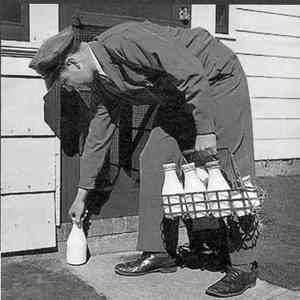 A week ago today, Anthony Fortunato, a 98-year old member of our Church died after a brief illness. His memorial service was yesterday. “It was a wonderful life” and “He was a one of kind person” are the cliches we have used over and over in talking about Anthony, not because we can’t think of anything else to say, but because they apply so well. His obituary listed the loves of his life as God, family and sports. Edith, his wife of 74 years, offered the list and said that it was in that order. “Usually,” she added. The beloved Phillies seemed sometimes to edge their way into first place.
A week ago today, Anthony Fortunato, a 98-year old member of our Church died after a brief illness. His memorial service was yesterday. “It was a wonderful life” and “He was a one of kind person” are the cliches we have used over and over in talking about Anthony, not because we can’t think of anything else to say, but because they apply so well. His obituary listed the loves of his life as God, family and sports. Edith, his wife of 74 years, offered the list and said that it was in that order. “Usually,” she added. The beloved Phillies seemed sometimes to edge their way into first place.
At the memorial service I mentioned that Tony was “just a milkman.” That he was a milkman is the fact of the matter. He had worked for Harbison and Greenwood Dairies. Some people still remember his kindness to them as their milkman. I added “just” to acknowledge the world’s sensibility about such things. Milkmen are “just milkmen” in that they are not named to halls of fame or given accolades and honors for doing their job. They are not heroes of great battles and they do not concoct life-saving drugs or invent time-saving devices. Milkmen just do their job. In fact, milkmen just did their job.
There are no more milkmen in our world, those honorable workers who served God through their church, loved their wives and raised and nurtured their children, volunteered in the community and caught an occasional Phillies game at Connie Mack Stadium, all on what they earned bringing milk to the back doorstep of their customers’ houses. We buy milk at the Wawa on the way home from a busy day.
So is it just a matter of nostalgia? Neither are there any longer black and white televisions, eight-track tapes, carburetors or mechanics to repair them, politicians who think it is important to go to church or doctors who make house calls. Things change. Move on.
One of the great contributions the Protestant Reformation made to our understanding of the life to which God calls us is in the area of vocation. The Medieval Church had taught that that sacred orders – those who were called to be monks and nuns, priests and bishops – were the godly vocations and that all other work was worldly and less valuable. Martin Luther famously said, “A cobbler, a smith, a farmer, each has the work and office of his trade, and yet they are all alike consecrated priests and bishops…that this way many kinds of work may be done for the bodily and spiritual welfare of the community, even as all the members of the body serve one another.”
Anthony used his work delivering milk as ministry, a vocation to the glory of God, and to that work, Luther would say, he was as much consecrated as any priest or bishop.
Managing data or processing forms, investing capital or coordinating health care providers is also, or can be – must be for the Christian, a godly vocation. But there is something about those now-lost or almost-lost vocations, the smith and cobbler, the milkman and the neighborhood mechanic that reminds us of good work as it might be done to the glory of God. Pastors and politicians, teacher and technicians, bankers and butchers are called to do what they do to the glory of God.
We are not yet done remembering Anthony Fortunato. If you knew Anthony, write one of your stories of him and send it to Edith. She and the family will be glad to hear it. I for one am glad that I got to know Anthony, just a milkman, who taught us all about work done to the glory of God.
